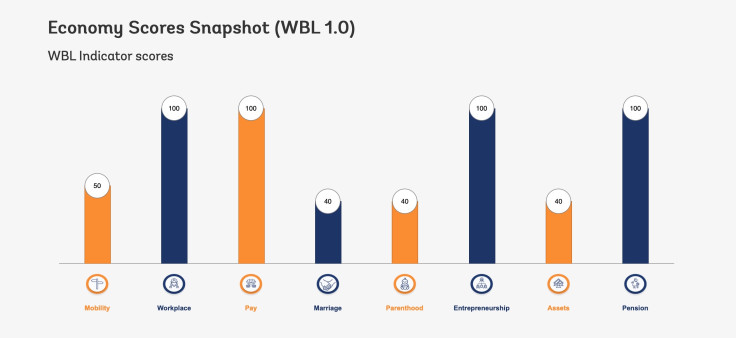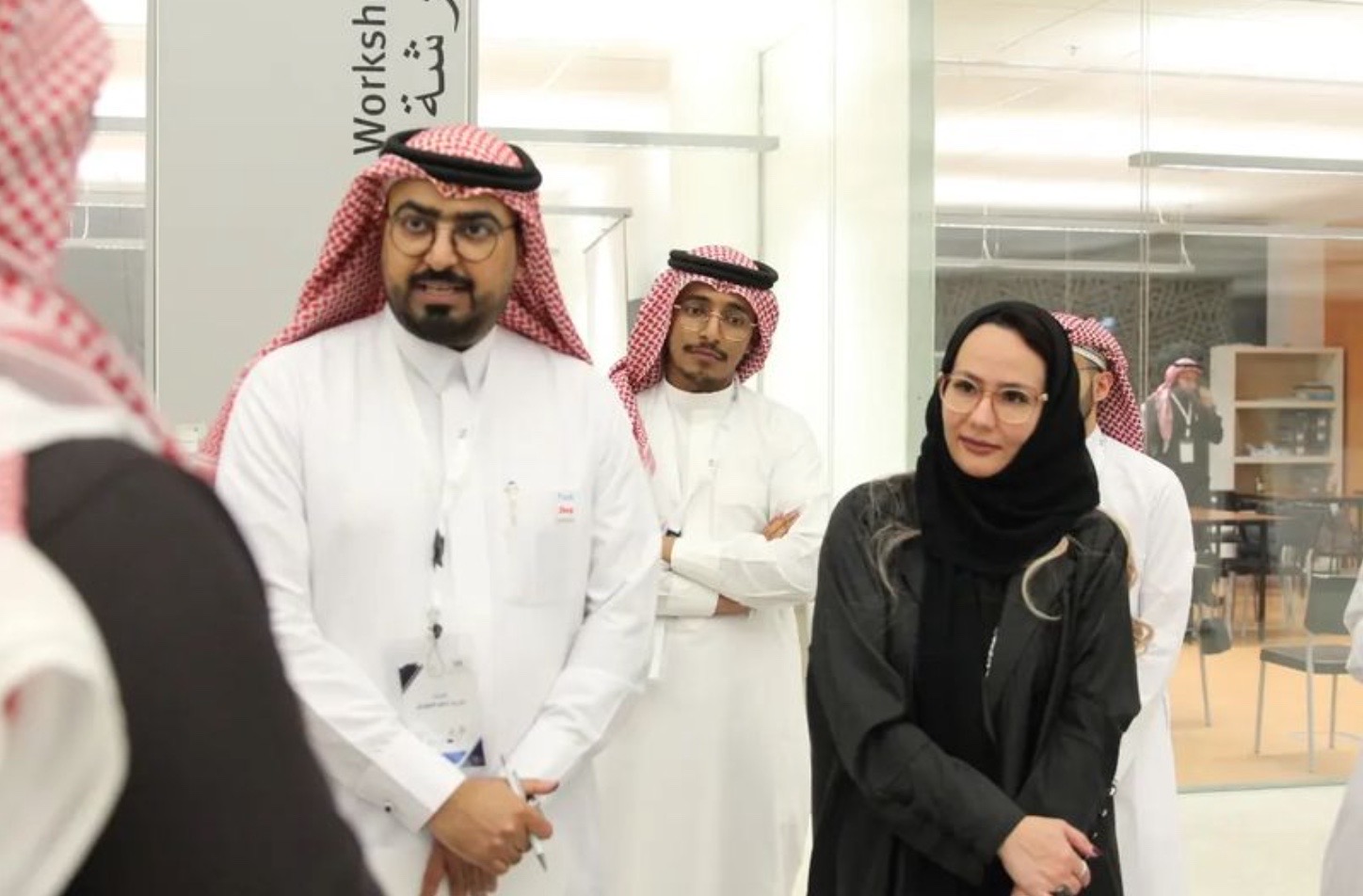Just six years ago, in 2018, it was illegal for women to drive in Saudi Arabia. Until the summer of 2019, women were prohibited from travelling abroad without a male guardian or chaperone. But today, according to the Women’s Report for the Kingdom of Saudi Arabia report, 95 per cent of Saudi Arabia’s female population is considering a career as an entrepreneur.
The Middle Eastern nation, considered one of the world’s most gender-segregated countries, has seen increased entrepreneurial activity in recent years.
According to a report published by the Small and Medium Enterprises General Authority, widely known as Monsha’at, Saudi Arabia saw its small and medium businesses surpass 1.2 million in the first four months of 2023. The incline of enterprises reflects a 4.8 per cent boost in entrepreneurship compared to the final quarter of 2022.
Mohammed Al-Belwe, the vice governor for communications at Monsha’at, told Arab News: “More than 88,000 new SME ecosystems pass new milestones every quarter.”
“Behind these numbers is an exciting new generation of entrepreneurs who are striking out on their own, and as the Kingdom’s non-oil economy surges, the growth of SMEs will continue to kindle unprecedented private sector growth.”
A new report published by KSA business consultant Innovision found that women represent 40 per cent of digital entrepreneurs in the Kingdom. Innovision’s report, which studied the growth of women entrepreneurs in Saudi Arabia, also revealed that Saudi women are leading almost half, 45 per cent, of SMEs – according to Innovision.
“From all corners of the Kingdom, women are becoming the driving force behind Saudi Arabia’s growing SME sector,” the report added.
As Saudi Arabia continues to embark on its Vision 2030, which aims to empower and create one million jobs for women in Saudi Arabia, the Kingdom’s authorities have been slammed by Amnesty International for continuing its “abysmal” treatment of women.
Maha Shirah has worked as an entrepreneur in Saudi Arabia for over a decade.
In 2013, Shirah launched SheWorks, the first global marketplace for women in Saudi Arabia that connects female-led businesses with other professionals.
@MahaShirah via Instagram
Speaking to International Business Times UK, Shirah said she founded SheWorks “when there were no business hubs, co-working spaces, business incubators or accelerators in Saudi.”
“Back then, segregation between men and women in Saudi was the norm, especially at work. Unless you were in the medical field or banking sector, no men and women were allowed to work together in the same space.”
Shirah added that SheWorks was a “necessity, ” noting that she wanted to create “a place for women to start something: a passion, a hobby, a small business, a club, a gathering, a minimum viable product.”
“We started as a co-working space providing space, desks and a community; then we gradually became the first licensed business incubator for women in Saudi Arabia.”
“I work as an entrepreneurship consultant in different accelerators and incubators. I give lectures, seminars, and workshops at universities and high schools, so I meet a lot of young ladies who are hesitant to start or launch an idea,” the founder of SheWorks explained. “I become their coach or mentor.”
Growing up, Shirah said girls are “taught that finding a job is the best, normal and safe path. However, I always had crazy thoughts and new ideas popping up in my brain.”
“I loved trying new things and experimenting with new methods, especially when solving complex problems. Of course, I also knew I would love being my own boss and managing my own time and accomplishments.”
While the SheWorks founder said that she received little support when she started her career as an entrepreneur, Shirah said that she is not surprised that more than 90 per cent of Saudi women are considering a career as an entrepreneur.
“Saudi has come a long way in the last ten years,” Shirah explained, going on to note: “Saudi has jumped 50 years into the future within ten years. The entrepreneurship is part of that giga change. Women are no longer afraid of the risk of stigma or anything – they have been hungry for chances to stand out and have done it on all scales.”
In its most recent Women, Business and the Law 2024 report, the World Bank noted: “When it comes to laws affecting women’s decisions to work, laws affecting women’s pay, constraints on women starting and running a business, and laws affecting the size of a woman’s pension, Saudi Arabia gets a perfect score of 100.”
However, despite the shift in attitudes towards businesswomen and the surge in female entrepreneurship, official figures show that just 36% of Saudi women are employed.
“I think it was due to the type of education that women used to get at universities,” Shirah said, revealing: “It was designed to meet educational positions and specific jobs in certain sectors, such as education.”

The World Bank
Since working women have emerged in the Kingdom’s labour force, a woman’s “social role has been altering gradually,” the SheWorks founder added.
“Women had to balance work, their social life, and family, especially maternity. [But now,] the rising number of women changed the perspective of men towards the women in their lives; they have more respect and higher expectation.”
“Women can do anything and work anywhere once empowered or allowed to do so. History tells us that stereotyping prevented women from studying medicine because they thought women couldn’t handle such a job, yet here we are, today we have thousands of female doctors and nurses working in the medical field.”
Regarding stereotyping women, Shirah explained that Saudi women often feel stereotyped by the West.
“It is such an ignorance,” the SheWorks founder said. “I wish they stop stereotyping and referring to Hollywood movies and biased media about Saudi Arabia in general and Saudi women specifically. Stop comparing us to other Arab nations; we are not the same.”
“Our women, from different regions of Saudi, represent these unique characteristics. Every woman represents her own family, tribe, accent, culture, knowledge and level of education.”
While the Kingdom’s controversial 2022 Personal Status Law states that women are to obey their husbands “in a reasonable manner,” Shirah added: “We are not slaves to our men, nor are we oppressed. We are citizens who are served by the men of their families… We share the same issues with other women of the world.”
In a bid to become a serial entrepreneur, Shirah said that she is “currently entering the beauty industry. I have opened my first salon and beauty bar. It is called Bubblegum, a baby sister to SheWorks.”
“I always have something new up my sleeve,” she added.







